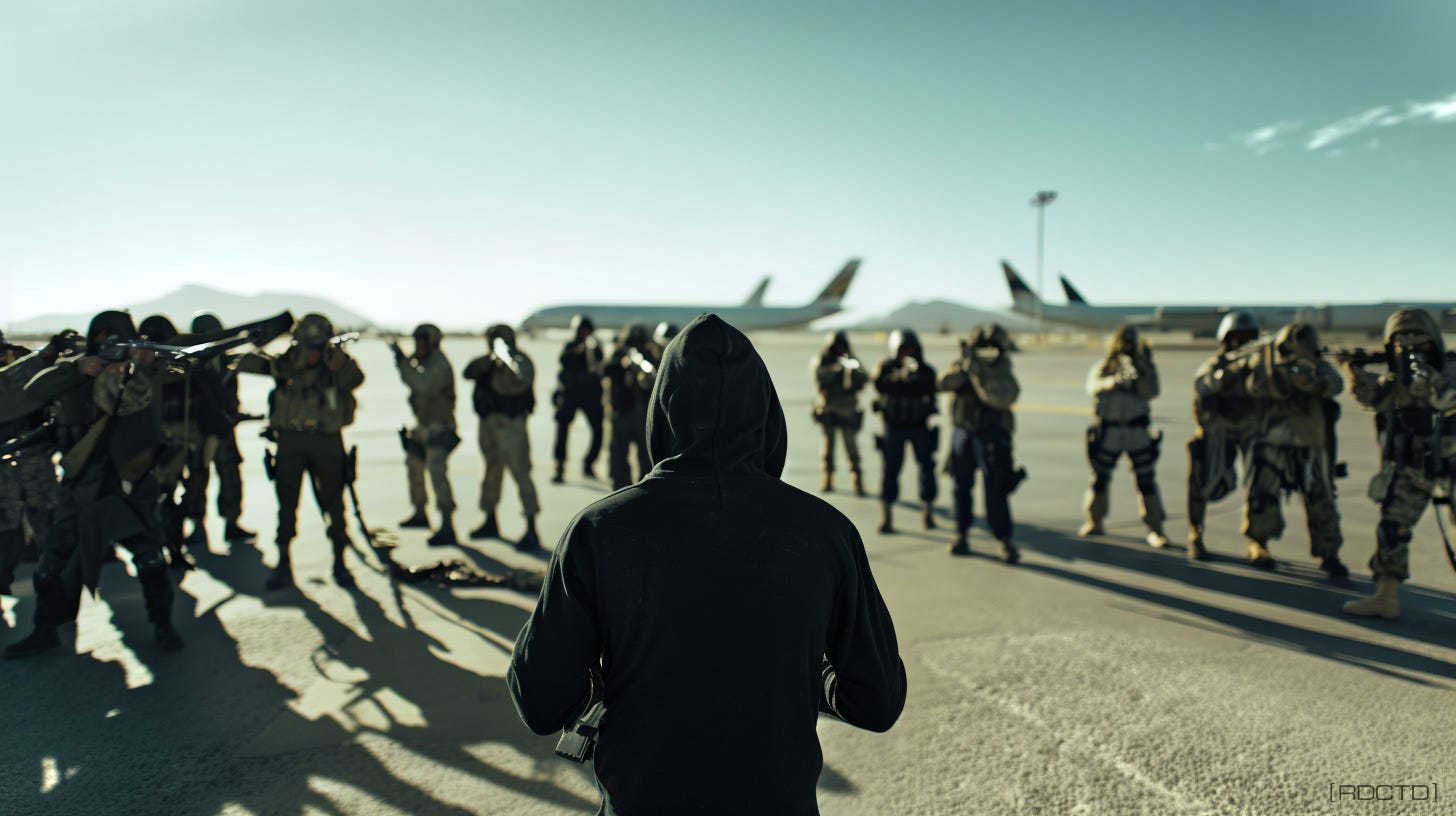The Strategy of "Getting Caught" as Part of The Plan
Getting "caught" as part of the plan can be a bold and effective strategy in covert operations.
The idea here is that an operative deliberately gets apprehended to achieve a specific objective that would be otherwise difficult or impossible to accomplish.
This technique relies on turning the apparent setback of capture into an advantage, allowing the operative to manipulate their captors, gather crucial information, or create opportunities for their team.
One of the core elements of this strategy is the controlled nature of the capture. The operative must be well-prepared, with contingencies in place to deal with the interrogation and possible imprisonment. This involves mastering tradecraft techniques such as disinformation, psychological manipulation, and escape plans.
The operative needs to convincingly play their part, ensuring their captors believe the situation is genuine. This ruse can lead the captors to reveal critical details or make operational mistakes, all of which can be exploited by the operative's team.
A historical example of this strategy in action is the case of Duško Popov, a double agent during World War II. Popov, who worked for the British MI6 and the Abwehr (German intelligence), allowed himself to be captured by the Germans under controlled circumstances. His capture led the Germans to believe they had neutralized a significant threat, while in reality, Popov used his position to feed them false information and subtly influence their strategic decisions. His ability to endure and manipulate the situation ultimately contributed to the success of Allied deception operations, such as those leading up to the D-Day invasion.
Executing a plan where getting caught is a strategic move requires meticulous preparation and unwavering mental fortitude. The operative must be skilled in interrogation resistance techniques and possess the ability to maintain their cover story under pressure. It's a high-stakes game where one slip can lead to catastrophic consequences, but if done correctly, it can yield significant intelligence gains or facilitate broader operational goals.
The psychological resilience needed for this kind of operation cannot be overstated, as the operative has to endure genuine hardship while maintaining the deception.
In essence, getting "caught" as part of the plan is a masterful display of the craft. It's a reminder that in the intelligence business, not everything is as it seems, and sometimes, losing a battle can be a deliberate move to win the war. By using their capture as a tool, operatives can flip the script on their captors, turning a potential vulnerability into a powerful asset.
This strategy underscores the complexity and depth of intelligence operations, where calculated risks and psychological warfare often play a decisive role in achieving mission objectives.



